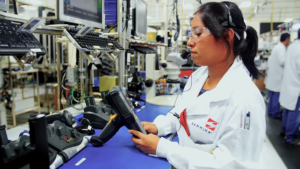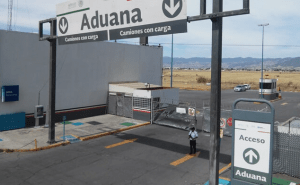
Mexico halts tariff hike on apparel and textile products
The Mexican government halted a tariff hike on apparel and textile products with a six-month extension of the pre-established conditions. When the tariff increase was

The Mexican government halted a tariff hike on apparel and textile products with a six-month extension of the pre-established conditions. When the tariff increase was

Five U.S. companies requested that tariffs be applied to imports of solar wafers and cells to Mexico originating in China. The American Solar Manufacturing Alliance

The Mexican government specified the U.S. content in the production of automobiles in Mexico with respect to General Motors (GM), Ford Motor and Stellantis. By

Automotive trade between Canada and the United States recorded a year-on-year drop of 7.5% from January to November 2024, according to Census Bureau data. This

Mexico imposed tariffs on products imported by parcel and courier services starting January 1, 2025. These tariffs will be different depending on whether the country

The average MFN tariffs applied by China on manufactures was 6.8% in 2023, according to data from the World Trade Organization (WTO). China has shown

Mexico announced the imposition of tariffs on apparel and textile products as a measure to combat technical smuggling. The tariffs will be 35% for 121

Sanmina’s outlook for 2025 is positive in terms of revenue, in the face of an improving supply chain, although still with relevant challenges to face.

President Claudia Sheinbaum suggested that Mexico could impose retaliatory tariffs that her U.S. counterpart, Donald Trump, announced he would set against Mexico on his first

The Ministry of Finance and Public Credit (SHCP) projects that Mexico‘s import revenue will increase at a year-on-year rate of 8% in 2025 in real

The Mexican government halted a tariff hike on apparel and textile products with a six-month extension of the pre-established conditions. When the tariff increase was

Five U.S. companies requested that tariffs be applied to imports of solar wafers and cells to Mexico originating in China. The American Solar Manufacturing Alliance

The Mexican government specified the U.S. content in the production of automobiles in Mexico with respect to General Motors (GM), Ford Motor and Stellantis. By

Automotive trade between Canada and the United States recorded a year-on-year drop of 7.5% from January to November 2024, according to Census Bureau data. This

Mexico imposed tariffs on products imported by parcel and courier services starting January 1, 2025. These tariffs will be different depending on whether the country

The average MFN tariffs applied by China on manufactures was 6.8% in 2023, according to data from the World Trade Organization (WTO). China has shown

Mexico announced the imposition of tariffs on apparel and textile products as a measure to combat technical smuggling. The tariffs will be 35% for 121

Sanmina’s outlook for 2025 is positive in terms of revenue, in the face of an improving supply chain, although still with relevant challenges to face.

President Claudia Sheinbaum suggested that Mexico could impose retaliatory tariffs that her U.S. counterpart, Donald Trump, announced he would set against Mexico on his first

The Ministry of Finance and Public Credit (SHCP) projects that Mexico‘s import revenue will increase at a year-on-year rate of 8% in 2025 in real